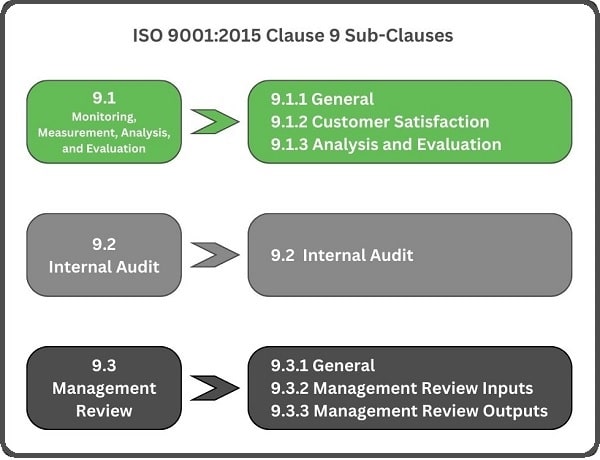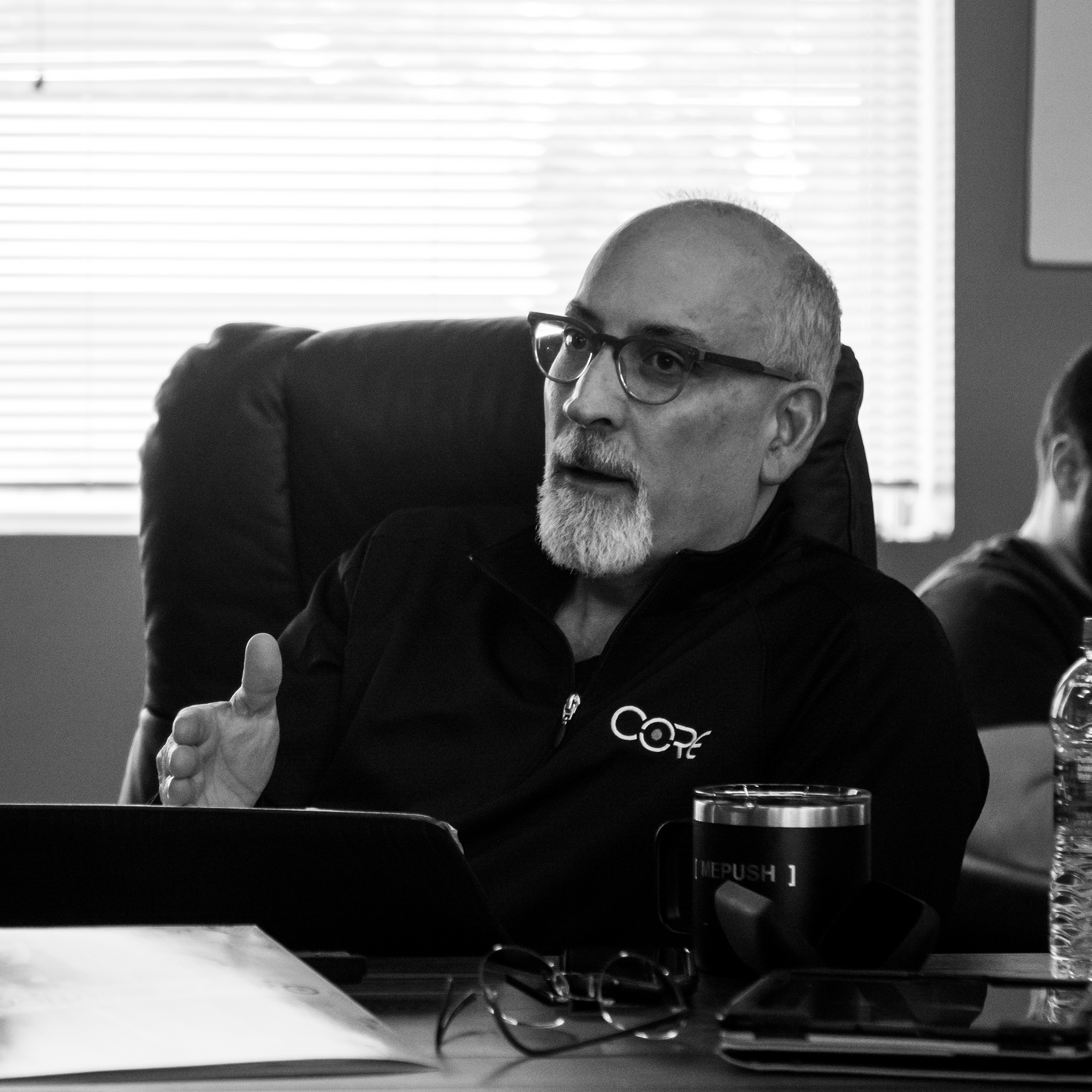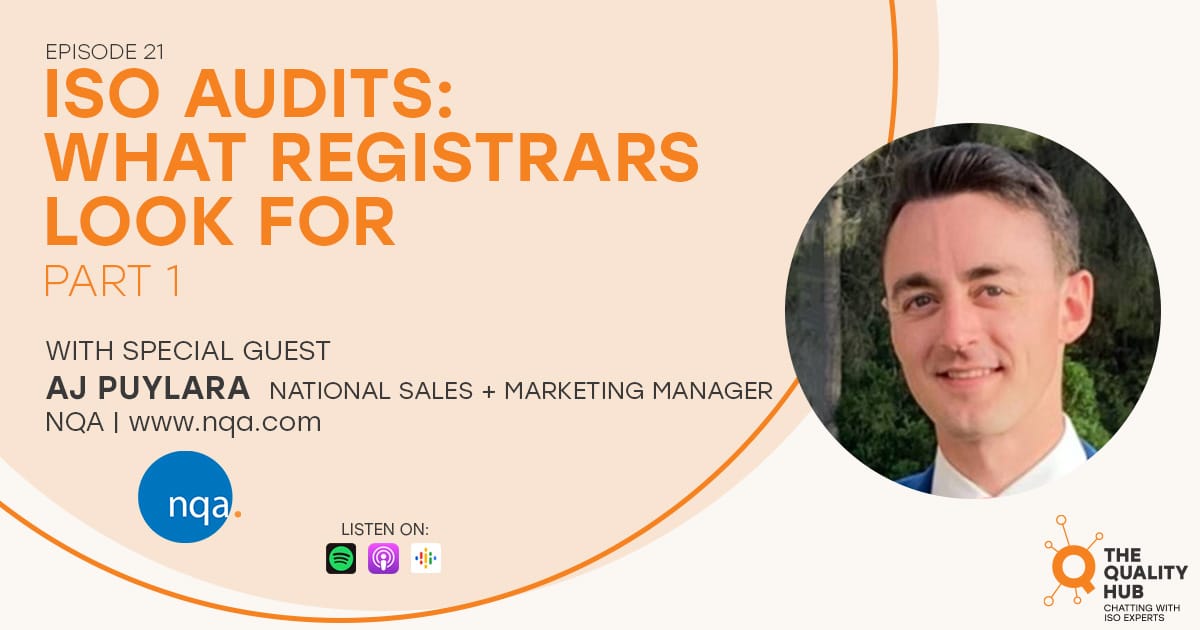ISO 9001:2015 Clause 9.3
What is ISO 9001:2015 Clause 9.3?
ISO 9001:2015 Clause 9.3 is titled “Management Review.” This clause outlines the requirements for organizations to conduct periodic reviews of their quality management system (QMS) by top management. The purpose of the management review is to ensure the suitability, adequacy, and effectiveness of the QMS in achieving its intended outcomes and supporting the organization’s strategic objectives.
Key points outlined in Clause 9.3 include:
General Requirements:
Top management is required to review the organization’s QMS at planned intervals to ensure its continuing suitability, adequacy, effectiveness, and alignment with the strategic direction of the organization.
Input to the Management Review:
Relevant information is to be collected and presented as input to the management review. This information may include data on QMS performance, customer feedback, process performance and effectiveness, status of corrective and preventive actions, audit results, and changes that could affect the QMS.
Get a Free Quote
Output of the Management Review:
The output of the management review should include decisions and actions related to opportunities for improvement, needed changes to the QMS, and resource needs. This information is crucial for driving continual improvement within the organization.
QMS Policies and Objectives:
During the management review, top management must assess the organization’s QMS policies and objectives to ensure they remain suitable and aligned with the organization’s strategic direction.
Risk and Opportunities:
Top management is required to evaluate the organization’s risks and opportunities as they relate to the QMS, ensuring that actions are taken to address these factors.
Changes that Could Affect the QMS:
Any changes that could affect the QMS, including changes to the organization’s external and internal context, need to be considered during the management review.
Continual Improvement:
The management review process should emphasize the need for continual improvement. Top management is responsible for promoting a culture of continuous improvement within the organization.
Records of the Management Review:
Records of the management review, including minutes and any decisions or actions, should be maintained to demonstrate evidence of the review process.
The management review is a crucial component of ISO 9001:2015, as it provides top management with a comprehensive overview of the organization’s QMS performance and effectiveness. It allows for strategic decision-making, and identification of opportunities for improvement, and ensures that the QMS is aligned with the organization’s goals and objectives.
How do you comply with Clause 9.3?
Compliance with Clause 9.3 of ISO 9001:2015, which pertains to management reviews, involves a systematic and structured approach to assessing the performance and effectiveness of your organization’s quality management system (QMS). Here are steps you can take to comply with Clause 9.3:
Establish a Schedule for Management Reviews:
Plan and schedule management reviews at planned intervals. The frequency of these reviews should be determined based on the organization’s needs, the results of previous reviews, and any changes in the external or internal context.
Collect Relevant Information:
Gather relevant information to present as input to the management review. This information may include data on QMS performance, customer feedback, process performance, audit results, the status of corrective and preventive actions, and changes that could affect the QMS.
Prepare for the Review Meeting:
Distribute the collected information to top management before the review meeting. This allows them to review the data and come prepared for the discussions.
Conduct the Management Review Meeting:
Hold the management review meeting, with key members of top management in attendance. During the meeting, discuss the input information and evaluate the QMS’s suitability, adequacy, and effectiveness.
Review QMS Policies and Objectives:
Assess the organization’s QMS policies and objectives to ensure they remain suitable and aligned with the strategic direction of the organization. Consider any changes in the external or internal context that may impact these policies and objectives.
Evaluate Risks and Opportunities:
Evaluate risks and opportunities related to the QMS. Identify actions to address these factors and ensure that the QMS remains resilient and responsive to the organization’s context.
Identify Opportunities for Improvement:
Identify opportunities for improvement in the QMS. This could involve changes to processes, resource allocation, or strategic directions to enhance overall performance.
Make Decisions and Define Actions:
Make decisions based on the outcomes of the review. Define actions that may be necessary to address identified issues, capitalize on opportunities, or make improvements.
Promote Continual Improvement:
Emphasize the importance of continual improvement within the organization. Encourage a culture that supports ongoing enhancements to the QMS.
Document the Review:
Record the minutes of the management review meeting. Document the decisions made, actions defined, and any key discussions. These records serve as evidence of compliance with Clause 9.3.
Implement and Monitor Actions:
Implement the actions defined during the management review. Monitor their effectiveness and track progress toward improvement goals.
Maintain Records:
Keep records of the management review process, including meeting minutes, decisions, and actions taken. These records are important for demonstrating compliance during external audits.
By following these steps, your organization can effectively comply with Clause 9.3 of ISO 9001:2015, ensuring that management reviews contribute to the ongoing improvement and effectiveness of your quality management system.

What is the History of Clause 9.3?
ISO 9001 is a standard that has undergone several revisions over the years, and Clause 9.3, focusing on management review, has evolved in response to changes in quality management philosophies and practices. Here’s a historical overview of Clause 9.3 in ISO 9001:
ISO 9001:1987:
The first version of ISO 9001 was published in 1987, and it did not have a specific clause dedicated to management review.
ISO 9001:1994:
The 1994 revision introduced the concept of management review under Clause 4.15. This clause emphasized the importance of top management reviewing the organization’s quality system at planned intervals.
ISO 9001:2000:
The 2000 revision maintained the requirement for management review under Clause 5.6. This revision emphasized the need for top management to ensure the continuing suitability, adequacy, and effectiveness of the quality management system.
ISO 9001:2008:
The 2008 revision retained the structure of the 2000 version. The requirement for management review was found in Clause 5.6, which continued to focus on the overall effectiveness and performance of the quality management system.
ISO 9001:2015:
The most recent major revision of ISO 9001 was published in 2015. In this version, Clause 9.3 brought a significant shift in its structure and content. The emphasis moved beyond just the management review to a broader concept of “Management Review for Performance Evaluation.” This change aligned with the overall shift in ISO 9001:2015 toward a risk-based approach and a focus on achieving desired outcomes.
ISO 9001:2015 required top management to review the organization’s QMS at planned intervals to ensure its suitability, adequacy, effectiveness, and alignment with the strategic direction of the organization. The standard also emphasized the consideration of risks and opportunities and the need for a focus on continual improvement.
This revision reflected a more strategic and integrated approach to management reviews, encouraging organizations to use the review process not only for compliance but also as a tool for driving continual improvement and ensuring the QMS aligns with the organization’s overall goals.
Throughout the revisions, the evolution of Clause 9.3 mirrors the broader evolution of quality management principles, emphasizing the role of top management in overseeing and continuously improving the effectiveness of the QMS. The changes also reflect a shift toward a more holistic and strategic approach to quality management.
Helpful Resources: ISO Audits – What Registrars Look For Part 1
In this episode of “The Quality Hub: Chatting with ISO Experts,” host Xavier Francis interviews AJ Puylara, National Sales and Marketing Manager at NQA, a global certification body. AJ shares his experience in the ISO industry and discusses the ISO certification process. He highlights the steps involved, including engaging with a third-party ISO consultant or registrar and conducting a gap assessment. Listen Now
Consulting Support for ISO 9001
Every year, we help hundreds of small businesses achieve ISO 9001 certification. Support for ISO 9001 is available through any of our Consulting Programs As an American business with a story like yours, we know that time is valuable. Our expert consultants are here to take on the difficult, technical aspects of certification so you can focus on your business. They’ll work with you every step of the way until you’re successfully certified. Interested? Get a Free Quote.
In many industries, ISO 9001 has become a supply-chain requirement. When landing a big contract, ISO 9001 certification could make all the difference.

About Core Business Solutions
"Core Business Solutions was started by my brother, Mike Dawson, and myself, true entrepreneurs at heart looking for a better way to make a living and help small businesses improve the quality of the products and services they provide.
The bottom line: we are real people that have developed a team to come along side you to help you grow and succeed."
-- Scott Dawson, President
Related Standards
We provide consulting support for various other standards, as well as support for companies seeking multiple certifications through an Integrated Management System.
AS9100
Aerospace Manufacturers
AS9120
Aerospace Distributors
ISO 14001
Environmental Management Systems
ISO 27001
Information Security Management Systems
ISO 20000-1
Service Management Systems
ISO 45001
OH&S Management Systems
ISO 13485
Medical Device Manufacturers
AS9100
AS9120
ISO 14001
ISO
20000-1
ISO 27001
ISO 45001
ISO 13485
Equip Your Business to Meet ISO 9001 With CORE
At Core Business Solutions, we’re here to equip your company for success in meeting ISO 9001 requirements. We’ve helped hundreds of small businesses grow and deliver the best solutions to their clients. We provide ISO training services, consulting help, and compliance software and to help you get certified and stay certified. We focus on optimizing your processes and helping you implement an ISO-compliant QMS. When you partner with us, you’ll get the tools and help you need for success. For more information on the ISO 9001:2015 standard, please visit our articles page. You can also call our consulting office at 866-354-0300 or contact us online.
Do you want to update your existing ISO 9001 QMS System or refresh it?
We provide consulting services to assist you in your ISO 9001 Quality Management System refresh. We listen, conduct a gap analysis, update your Quality Policy and any necessary documentation or procedures, find areas of waste or improvement, simplify and automate. And we do it fast. Core offers firm, fixed pricing. Download our information sheet today to learn more or call us at 866-354-0300 Extension 2.

